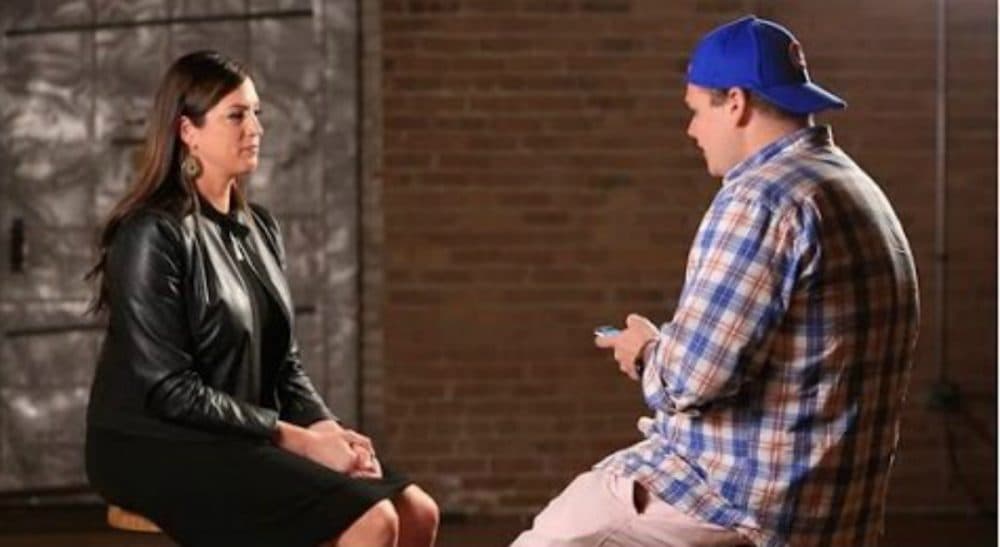Advertisement
For Women Sportswriters, Harassment Is More Vile Than Ever

I know sports. I talk sports like guys do. As a 20-something reporter for Sports Illustrated in the 1970s, I was a rarity. Often I was the only woman in the press box. By 1977, I’d been named as the plaintiff in the federal lawsuit, Ludtke v. Kuhn. My employer, Time Inc., went to court as a last resort after trying to convince Major League Baseball that women reporters needed equal access to do their jobs. Commissioner Bowie Kuhn had used my gender to deny me entry to teams’ locker rooms during the 1977 World Series. We required a judge’s ruling to gain the access our male colleagues had to interview players in the clubhouse.
Much of what women endure just to do their jobs today – not only in sports, though these women do bear a weightier burden than many – sounds all too familiar to my practiced ears. Only worse.
Mere mention of this possibility had opened floodgates and reactionary words poured out: “Outrageous.” “Preposterous.” “Laughable.” “Harlots.” “Your prostitutional a--.” This is just a tiny sample of what men had said about me and other women audacious enough to think we could do what men do – report about sports. Portrayed as provocateurs, we were the problem. Men wished we’d go away. They'd insult us, as best they could, and we’d leave. Or so they thought. We didn’t, so now 40 years later, thousands of women work in sports media. That a lot of us, including men, don’t notice that a woman is broadcasting a game or writing the story says much about our progress.
Yet, as Smartphones attest, progress can be illusionary. Much of what women endure just to do their jobs today – not only in sports, though these women do bear a weightier burden than many – sounds all too familiar to my practiced ears. Only worse. A few social media messages are emblematic of what reaches women who cover sports: “One of the players should beat you to death with their hockey stick, like the whore you are,” or, “I hope your boyfriend beats you.” Oh, their words get worse, though I am not permitted to write them here.

The shaming and degrading of women hasn’t changed since I was covering baseball. Today’s cyber-vehicles simply enable cruder language and encourage expression of viler thoughts. In truth, cyber-bullies tread a well-worn path that existed before my day. Here’s how the path starts: by sexualizing women. To do this, use whatever words are permissible. Next time, try a few that aren’t, and if those words stick, use them again and again, until they no longer elicit reaction. Amp up. Remember the goal: transform “she” into “it,” thus stripping her of power. (As a bonus, create in men’s minds the image of a naked woman.) When men perceive her as a sexual object, she is no longer doing. She's now the one to whom things are done.
Hostility at the women who show up in male-dominated spaces weaves its way through each of our generation’s name-calling. What’s changed in 40 years is the astoundingly higher level of tolerance we have for verbal (and written) abuse, and not just against women. Sadly, we seem to have grown accustomed to the misogynistic tone of what’s routinely said about women in power or about those in positions where some men don’t feel they belong.
Advertisement
This time it won’t be a judge who changes the lives of women sports reporters. It will be us.
The pervasiveness of this abuse numbs us and keeps us from calling out its vulgarity. Strapped to our indifference is its ever-escalating ferocity and vitriol. Words hold the power to sting only for so long. Once they lose that power, a nastier word is at the ready, until we live amid this ever-spinning cycle of escalating slurs surrounding us today.
Few people fought back, until last week, when a few men sat face-to-face with two women who cover sports and read aloud messages aimed at them. Now this #MoreThanMean video is viral on social media.
For now, attention is being paid. But we weren't jolted out of our passivity until we saw men discomforted by reading these words to women. Is this just a nano-moment of outrage on Twitter? Trending today, gone tomorrow, while the tweeting bullies soldier on. Laws protect their words, as they do ours. This time it won’t be a judge who changes the lives of women sports reporters.
It will be us.
